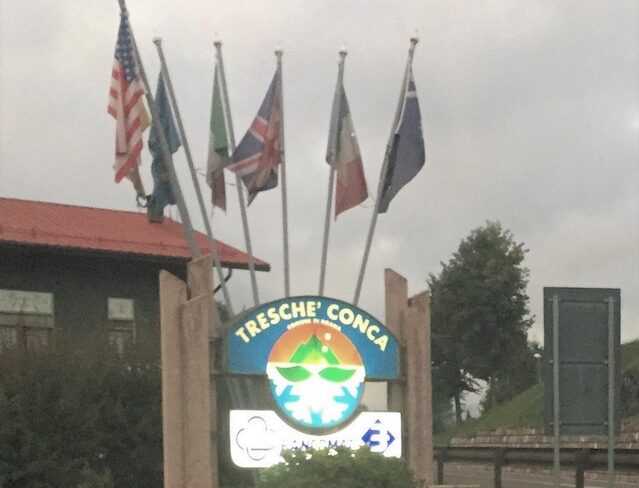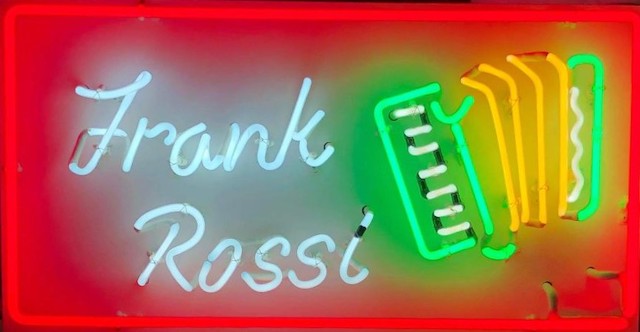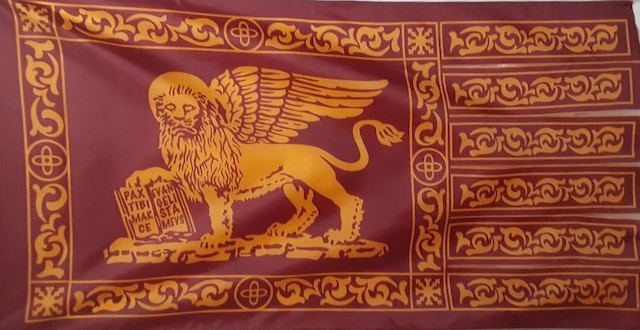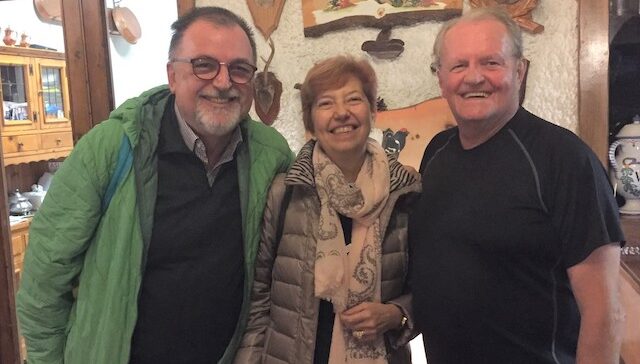As we grew up in Roseland, we would meet new people and our horizons would expand. When we were little, we would go from playing around our house to playing at our friends’ houses. When we went to grade school and met new friends, we couldn’t wait to go on adventures with them in the schoolyards, parks and prairies in our community. Our horizons really expanded when we went to high school, met a whole new circle of friends and learned to drive. Along the way, we made new discoveries and learned to deal with different situations.
Imagine if you will our forefathers. The original Roseland settlers came from Holland in 1849. They were followed by many Swedes and Germans. For many of us from the Kensington area of Roseland, our fathers came from somewhere in Italy. As a matter of fact, they came from many parts of Italy. Many of us are aware of Italy as being geographically unified in 1861, but was it really unified?
I was recently talking with my good friend the neon light artist Dino Rigoni. By the way, one of Dino’s most recent works honors our good friend Frank Rossi. He’s the Italian accordion playing singer that entertains at many venues on the SouthSside, keeping alive our Italian heritage. The Spaghetti-O’s Bonny Sandona ordered a custom sign as a group birthday gift from his fans to honor Frank for his years of entertaining. Dino was the designer and creator of the sign, which everyone raves about and Frank thought was the most fantastic gift ever.
I had mentioned to Dino that I had been to Italy this past October and how great the trip was. I got to visit with my Navy son James and his wife Heather, who have been stationed in Naples for three years. I spent a week in Naples, Bologna and Modena with them and then headed north through Rome to Venice and Asiago and the towns of Roana, Mezzasalva and Tresche Conca. Dino mentioned that he had also been to Italy and met up with family and friends while there. They took him many places he wouldn’t have even known about, let alone made it a point to tour.
In comparing notes about our visits to Italy in relation to our growing up in Roseland, we noticed an interesting difference. Dino realized more so than I did because his mother’s family was from the southern Italian town of Lucania while his father’s family was originally from Tresche Conca but moved 70 miles south to Nanto. In visiting his family in Nanto and speaking Italian with them, Dino noticed the southern and the northern Italians were different. Italy has always had a separation despite the “unification” because the North has always been industrial and the South agricultural. However, for both Dino and I the major difference was the language.
For Dino, visiting Calabria and then Nanto, the language differences were undeniable. For me, being in Naples was a reminder that my Italian, which has gotten better since I do the second reading at 8:30 mass in Italian, was still lacking. I did feel more confident with speaking Italian than I had in my 2015 visit with the Veneti nel Mondo, but I still wasn’t 100 percent confident.
Dino brought up the fact that, not only was there differences between the North and the South but everywhere in Italy there were dialects. You could be fairly fluent in Italian and yet you wouldn’t necessarily understand everything someone was saying. That adds to the charming fact that Italians are patient when speaking if they realize you aren’t familiar with the dialect. They give listeners the opportunity to absorb what they are hearing.
When I was in high school and had some friends over to play pool, my mother happened to come downstairs to do laundry. She said something to me, I responded and she went back upstairs. My friends asked what language my mother had spoken. I said “English.” They responded “No. It was something else.” My second guess, of course, was “Italian.” It was second nature to hear my mother’s voice, but there was no way I could be sure if she had spoken Italian or English.
After my mother had come to America, her family moved to Gorizia which is near Trieste. I met up with my cousins Claudio and his wife Mirca in Asiago and we visited Tresche Conca, Rotzo, Roana, Mazzaselva, and Asiago. We didn’t have any living relatives in the area to visit, but my cousins were very sociable and we met many people in the cafes and restaurants we visited.
With spending more time in Italy on my own, I gained more confidence in my Italian. For one thing, I traveled on my own so I had to speak Italian if I spoke with anyone. When I was with my cousins and they were in conversation with people they’d just met, I’d join in conversation. One time that I recall, we were having “un café” in Asiago when my cousins started up a conversation with a local gentleman.
The conversation was moving right along and so I joined in. I thought I was doing fine when, in the middle of my making a comment, the local gentleman shouted “Parla dialetto!” I thought I had said something wrong but actually I was doing really fine!
The local was amazed and pointing out that I was speaking dialect! Being raised with a mother who spoke Italian all the time, I’d forgotten that she spoke dialect from Italy’s Asiago region. That was what surprised and pleased the local because dialect is hardly spoken by anyone nowadays — it was like he was hearing something from the good old days.
That was the difference that came as a surprise to both Dino and I: Italian dialects! The dialects of the different regions or towns in Italy are sometimes so distinctly regional that native Italians have to figure out what is being said when they visit other parts of Italy. It’s no wonder that Dino and I, or others, have a problem understanding Italian.
When I was in the seminary back in the 1960s, it was explained to me that I would be learning “formal” Italian as opposed to the Italian I was used to hearing in my house. In other words, “Stop speaking the Italian you grew up with.” Any language classes any of us have ever taken, whether in person or online, are in formal Italian.
Since my parents passed away, there was only one time I actually heard someone speaking dialect. All these years later, I was able to understand everything that was being said. Not only could I understand, I also joined in the conversation and was completely understood. Not so for my formal Italian.
However, when I’m with some older Italians and they begin speaking Italian, such as many members of the Veneti nel Mondo Club, my Italian is fine because “Tutti parla dialetto.”
To contact me with information or to purchase a copy of my book for $20 + $4 s&h, 11403 S. St. Lawrence Ave., Chicago IL 60628; email: petalsfromroseland@gmail.com; tel res: 773-701-6756.
 Fra Noi Embrace Your Inner Italian
Fra Noi Embrace Your Inner Italian










